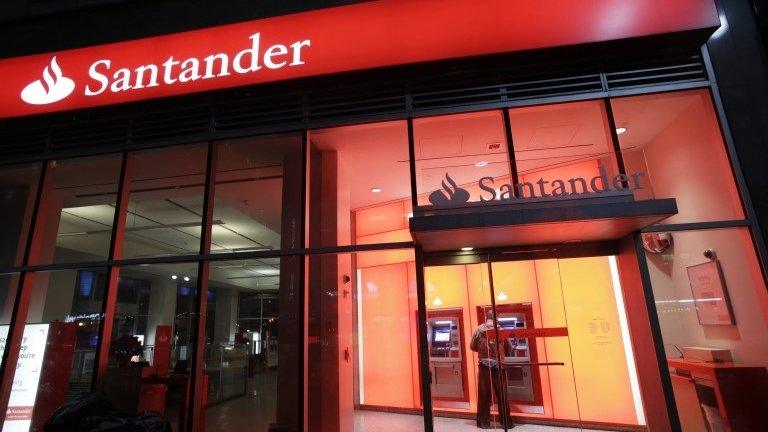Deutsche Bank shares soar 11% on bond buyback speculation
- Published
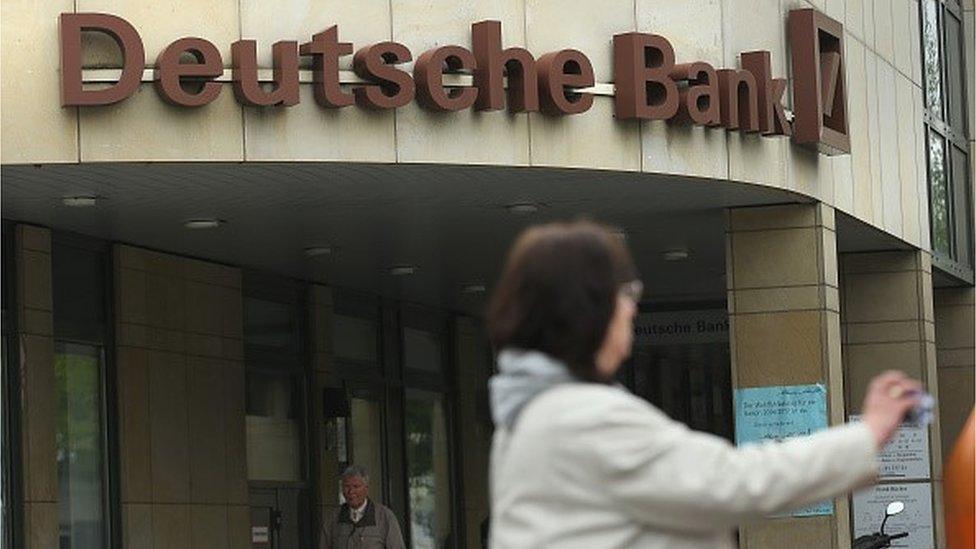
Deutsche Bank shares have bounced back, after hitting a 30-year low on Tuesday, on reports that it will instigate an emergency bond buyback plan.
Shares in the bank soared 10% to €14.58 (£11.31) in Frankfurt on the media reports, easing concerns about the strength of Deutsche's balance sheet.
The bank itself has made no comment.
The recovery in Deutsche Bank's share price came after two days of dramatic falls.
Shares slumped 13% over the course of Monday and Tuesday, despite assurances from the bank that its balance sheet was "rock solid".
Overall, shares in Deutsche are still down more than 40% since the start of the year.
A report in the Financial Times stated the bank was expected to focus its emergency buyback plan on some €50bn of senior bonds - debt that is repaid first if a company goes out of business.
But the bank's move is unlikely to involve so-called contingent convertible bonds.
Convertible bonds force investors to convert bonds into a predetermined number of shares at a given price, known as the strike price.
Contingent convertible bonds, or CoCo bonds for short, usually have a strike price that, as the name implies, is "contingent" on shares in a company remaining at that price for a certain period of time. If that trigger is hit, the bonds convert into shares.

Analysis: Simon Jack, business correspondent
During the financial crisis, when taxpayers around the world saved their banks, they also saved the investors who had lent the banks money. The idea that lenders to banks would suffer big losses was considered a very bad outcome as it would have disastrous knock on effects and undermine banks' ability to fund themselves in the future.
In the post-crisis world, politicians of every stripe have tried to reassure their voters this would not be permitted to happen again. New rules mean that, when disaster beckons again, some lenders to the banks would see their bonds (IOUs in effect) turn into shares - in other words - they may not get their money back in full or on time. These new IOUs are called Cocos - short for contingent convertible bonds.
In short, Coco investors are not getting the security lenders usually get. The removal of this implied government guarantee has made the value of those IOUs fall and threatens banks' ability to sell more in the future. That makes banks less stable and hey presto - here we are with some bank shares down 40% since the beginning of the year.

'Rock solid'
On Tuesday, Deutsche Bank's co-chief executive, John Cryan, sent a message to all staff, external in which he assured them the bank was in a strong financial position, despite global growth fears, low oil and other commodity prices, and the fact that the bank would be booking write-downs in its fourth quarter.
He said that while the stock markets had "expressed some concern about the adequacy of our legal provisions", he did not "share that concern".
Mr Cryan added: "Volatility in the fourth quarter impacted the earnings of most major banks, especially those in Europe, and clients may ask you about how the market-wide volatility is impacting Deutsche Bank."
He said staff at the bank could tell customers concerned about investing with the bank that "Deutsche Bank remains absolutely rock-solid, given our strong capital and risk position".
Takeover speculation
The email to Deutsche Bank staff, made publicly available via the bank's official Twitter account, external, is an unusual step.
The bank has also been the subject of takeover speculation in German media, given the low value of its share price. Deutsche Bank has had negative press for years now amid a series of scandals and litigation. It chalked up a record loss of €6.8bn last year.
Meanwhile, Credit Suisse chief executive Tidjane Thiam has told the Financial Times that he believes the Swiss bank's capital position is healthy and that they have "no liquidity issues."
He added that the bank's current common equity tier 1 capital ratio of 11.4% was the strongest Credit Suisse has ever had.
Tier 1 capital is the measure of a bank's financial strength based on the sum of its equity capital and disclosed reserves.
Last week Credit Suisse reported its first full-year loss since 2008, sending its shares tumbling.
- Published10 February 2016
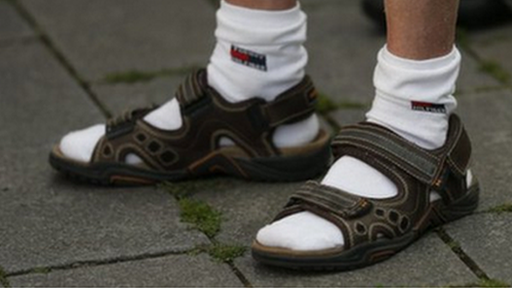
- Published9 February 2016
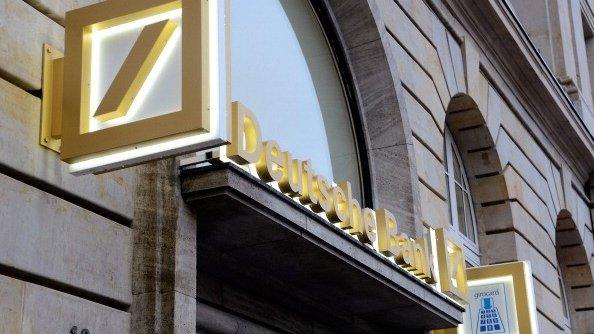
- Published4 November 2015
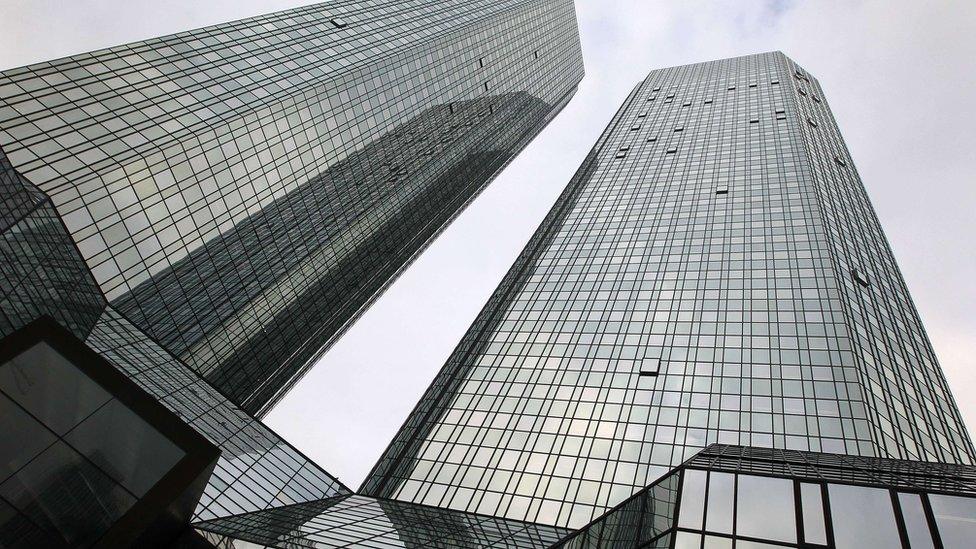
- Published23 December 2015
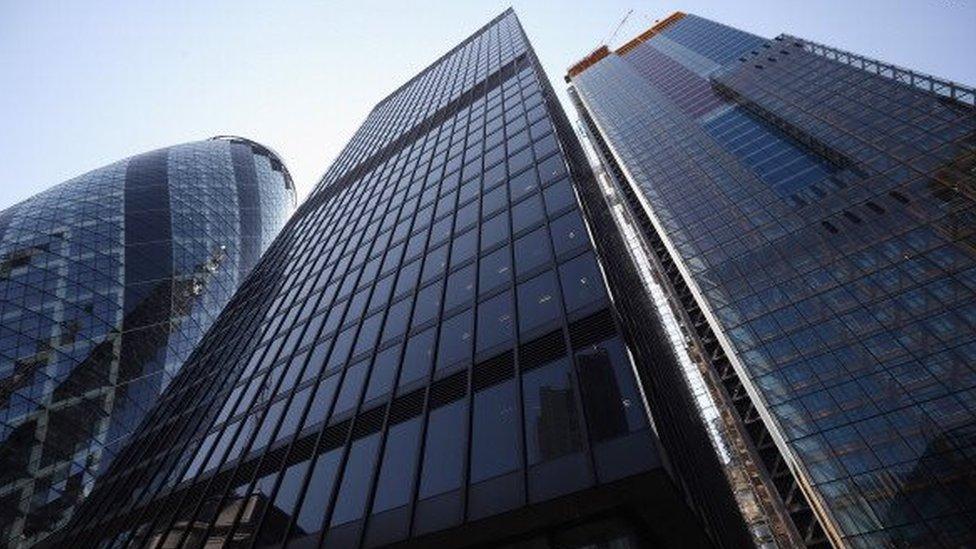
- Published15 February 2016
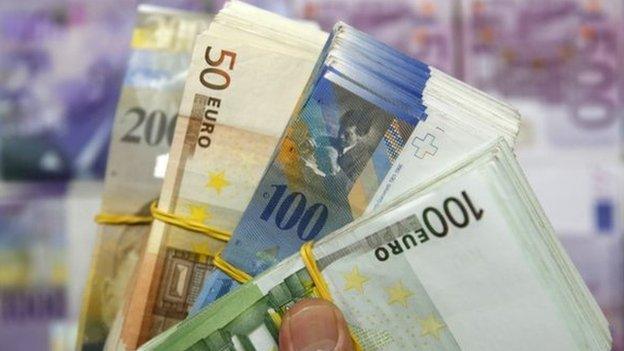
- Published11 March 2015
